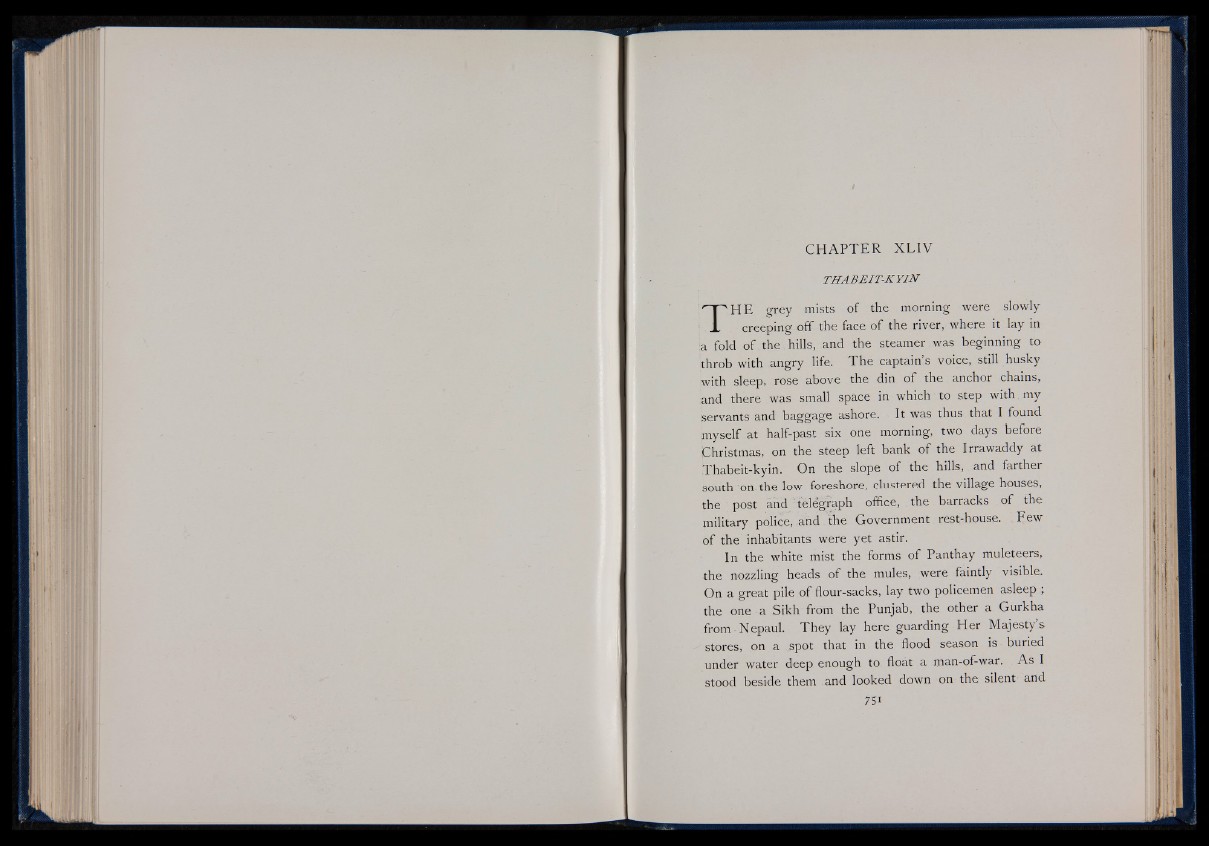
C H A P T E R X L IV
THA B E IT -K Y IN
q p H E grey mists of the morning were slowly
! X creeping off the face of the river, where it lay in
la fold of the, hills, and the steamer was beginning to
throb with angry life. The captain’s voice, still husky
with sleep, rose above the din of the anchor chains,
iand there was small space in which to step with my
servants and baggage ashore. It was thus that I found
myself at half-past six one morning, two days before
Christmas, on the steep left bank of the Irrawaddy at
Thabeit-kyin. On the slope of the hills, and farther
South on the low foreshore, clustered the village houses,
the post and telegraph office, the barracks of the
military police, and the Government rest-house. . Few
of the inhabitants were yet astir.
In the white mist the forms of Panthay muleteers,
the nozzling heads of the mules, were faintly visible.
On a great pile of flour-sacks, lay two policemen asleep ;
the one a Sikh from the Punjab, the other a Gurkha
from Nepaul. They lay here guarding Her Majesty’s
stores, on a spot that in the flood season is buried
under water deep enough to float a man-of-war. As I
stood beside them and looked down on the silent arid
7 S i